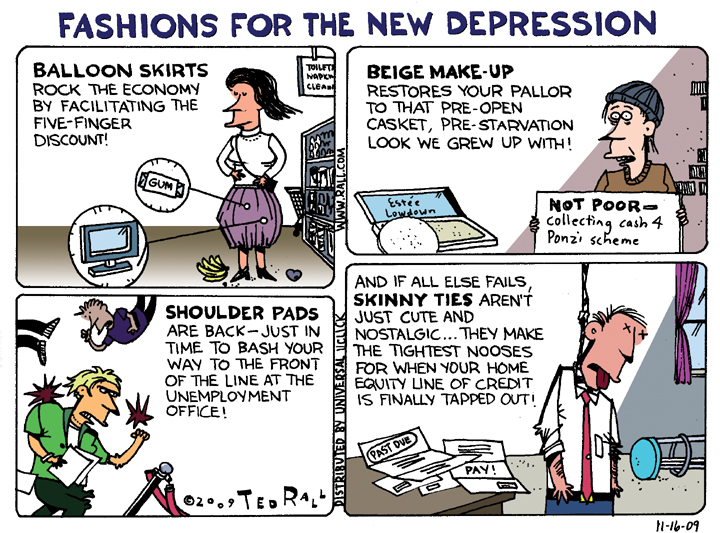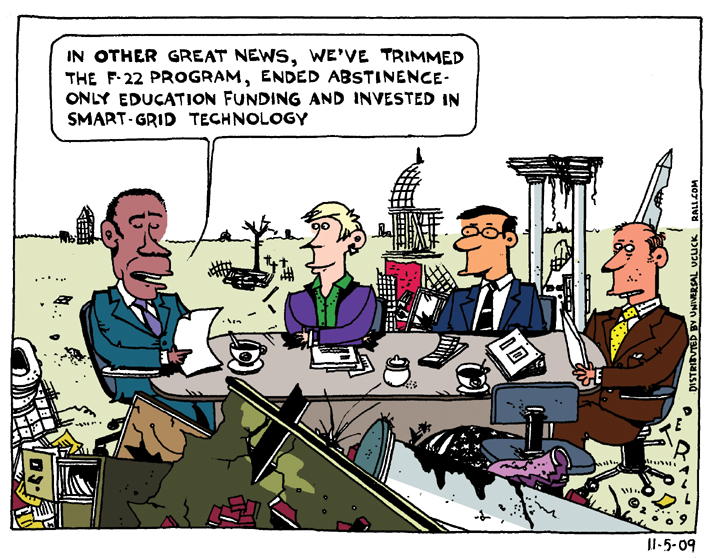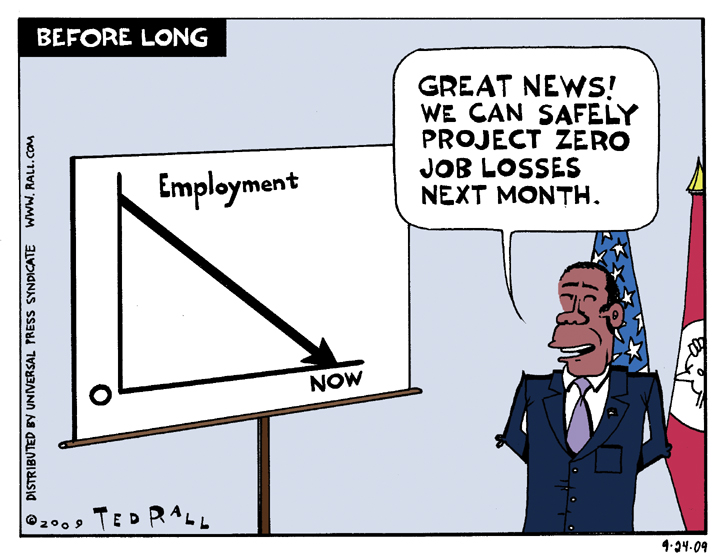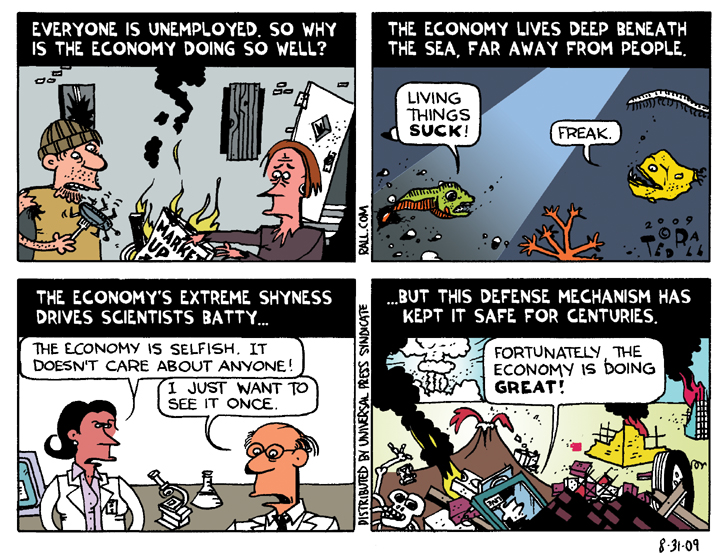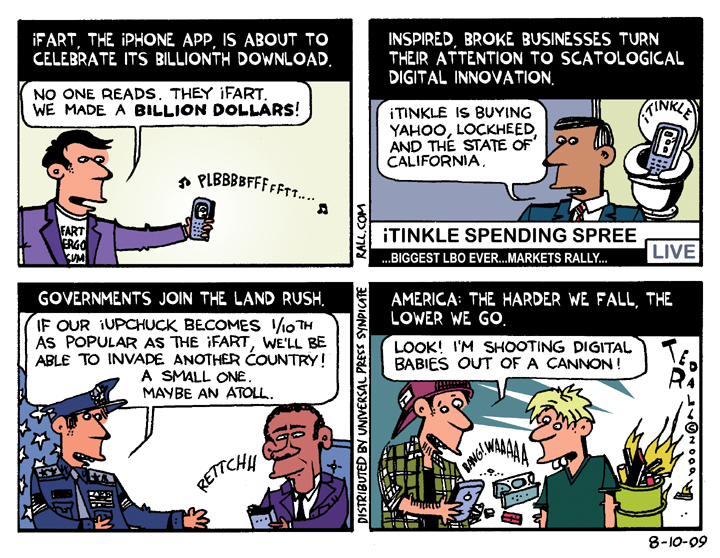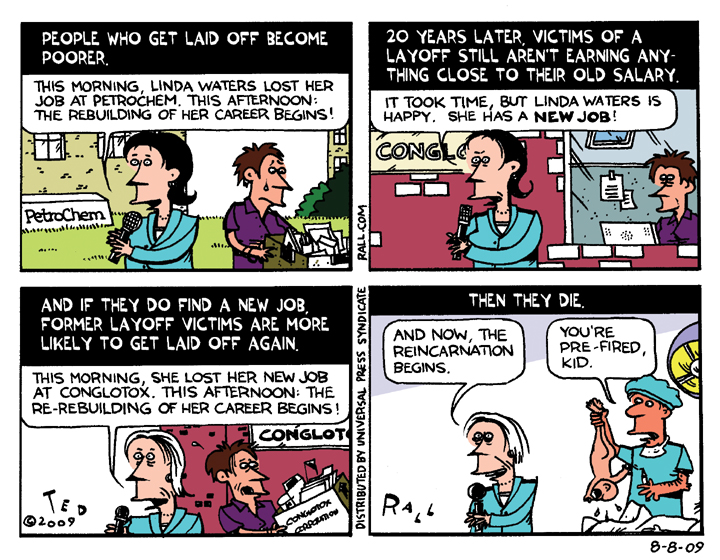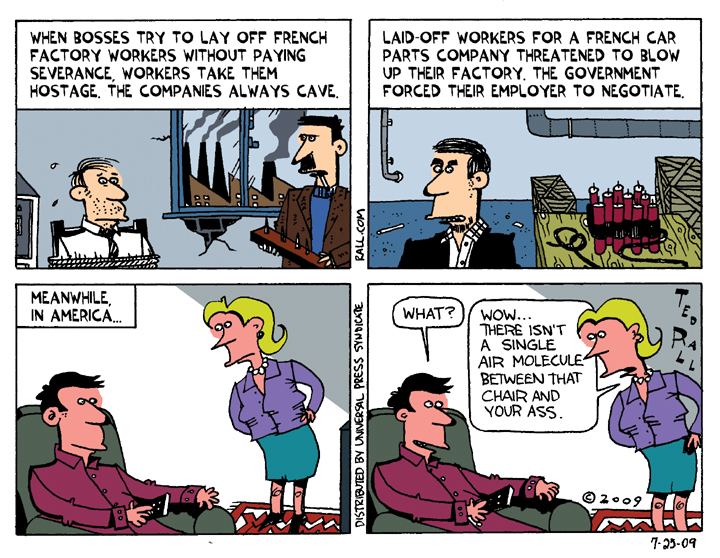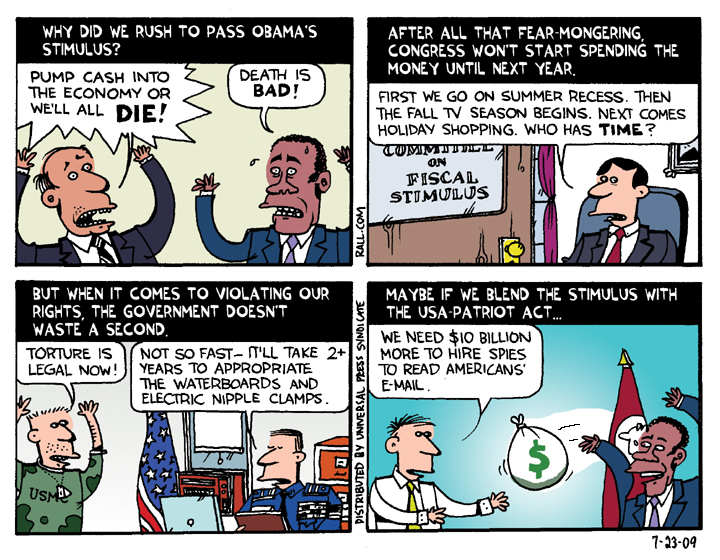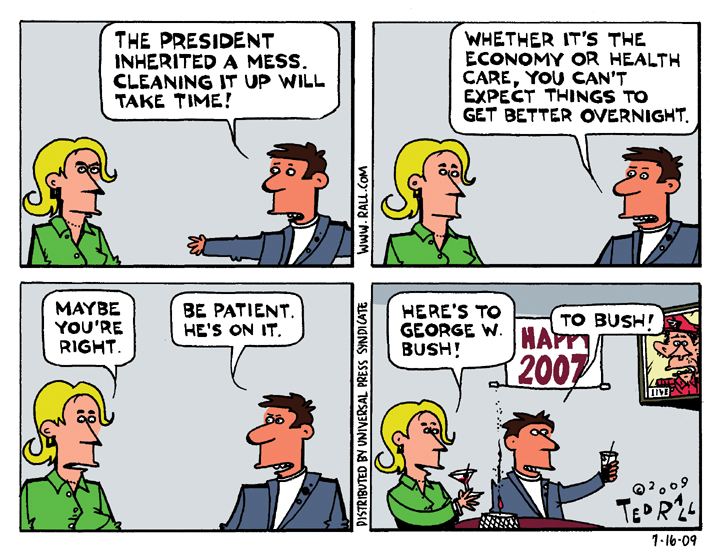In case you wonder, all four of these fashion trends are real. Yes, even shoulder pads.
Blend the Stimulus
This one was inspired by a conversation with Matt Bors. We were wondering aloud why Obama was in such a rush to pass the bailout bills, only to drag his ass in actually distributing the money. It’s not like they can’t do things quickly.
SYNDICATED COLUMN: Heckuva Job, Barry
Obama, Losing Jobs, Soon to Be Shovel-Ready
Pro-Obama political cartoonists have drawn variations of the same cartoon: the president, in the role of badgered parent on a family trip, is driving a car labeled “The Economy.” The American public, depicted as Uncle Sam or Joe Average, whines: “Are we there yet? Are we there yet? Are we there yet?”
With official unemployment approaching 10 percent and underemployment at 16.5 percent, Americans are running out of money—and patience. Obama’s approval ratings are down between 15 and 20 points, meaning that he has lost one in six Americans. His biggest weakness: the economy.
“I think the public knows three things: We inherited a total mess; we’re working hard on it; and we’re not going to get out of it overnight,” says Chief White House propagandist Rahm Emanuel. That part is true.
The trouble for Obama is that people don’t see any light at the end of the tunnel. “The key to what this year is about is rescuing the economy from falling off the cliff and trying to put in place the building blocks of recovery”—i.e., bailing out the banks, insurers and automakers, says Emanuel. That’s what 2009 has been about for Obama. But for ordinary Americans, 2009 is about keeping or finding a job.
Creating jobs, unfortunately, doesn’t seem to be an Obama Administration priority.
Were the bailouts necessary? Economists won’t know for years. What we do know is that the Administration’s approach won’t give the American people what they want and need more than anything else: jobs.
What’s the point of being patient? Even Obama admits help isn’t on the way.
Obama’s plan is Reaganomics redux. Give trillions of dollars to big corporations, he argues, and they’ll use it to capitalize new ventures, hire workers, and unclog the credit markets. Eventually. “We must let it work the way it’s supposed to, with the understanding that in any recession, unemployment tends to recover more slowly than other measures of economic activity,” he says.
But even Obama admits it won’t unfold “the way it’s supposed to.”
Obama says his plan “was not designed to work in four months. It was designed to work over two years.” But if current trends continue, if everything goes the way he hopes, it will never work. We will have lost 14 million jobs by 2010. That would leave us up 4 million at most—a net loss of 10 million. That’s a disaster.
And that’s why Joe Public is so antsy. “Are we there yet?” isn’t the right question. People think: “We can see how this is going to end: we’ll be upside down in a ditch, plucking safety glass from our scalps.”
Obama’s approach won’t work economically, and it won’t work politically. Setting bailouts aside, what the United States needs right now—what it needed over a year ago—was a ginormous federal jobs program.
What happened to the infrastructure construction projects, like high-speed rail, that attracted so much enthusiasm during the campaign? Right-wing economic czar Lawrence Summers and a bunch of wimpy Democrats trashed them. “Transportation spending was gutted by Republicans who insisted on more tax cuts—none of whom voted for the measure anyway—and by Obama advisers who shifted priorities to advance policy goals,” reported the AP.
Earlier this year the American Society of Civil Engineers said the nation’s long-neglected highways, bridges and tunnels require $2,200 billion in repairs just to get them up to basic safety code—not including high-speed rail. Obama’s stimulus plan included a mere $42 billion (less than two percent). Rail got $2 billion out of a needed $25 billion. Unless Obama does something soon, nothing is going to get built and unemployment will continue to soar.
Now that Wall Street firms like Goldman Sachs are reporting record profits, it’s time to “claw back” the bailouts, pull out of Iraq and Afghanistan, and direct federal dollars where we need them most: jobs. Give tax breaks to employers who add new workers, direct federal agencies to grow in size, and create zero-interest lending programs to laid-off would-be entrepreneurs. And let’s build some friggin’ infrastructure. Every $1 spent on infrastructure generates a $1.59 payback in the form of increased tax revenues—and creates a lasting legacy.
Speaking of cartoons, the Treasury Department’s Bureau of Public Debt recently came under fire for trying to hire a cartoonist to “discuss the power of humor in the workplace [and] the close relationship between humor and stress.” A Democratic Senator nixed the idea.
Too bad: at least Obama could have taken credit for creating one job.
COPYRIGHT 2009 TED RALL

